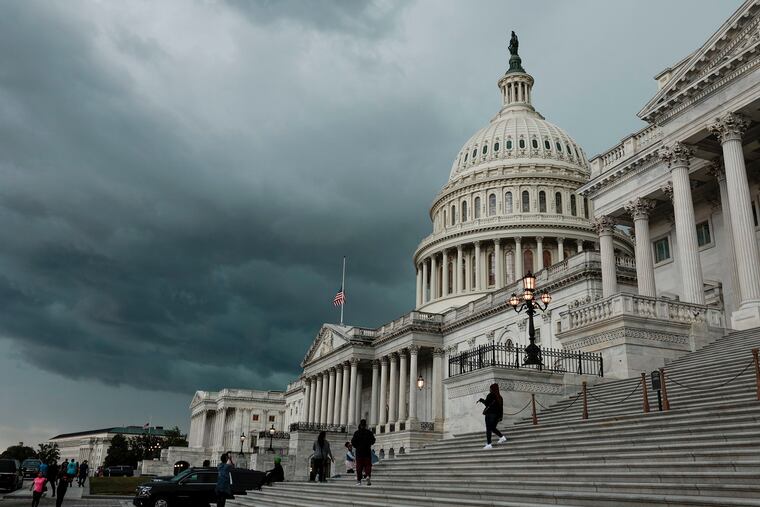Senate votes against the $40 billion Restaurant Revitalization Fund, dashing owners’ hopes
The Senate voted 52-43 for legislation that would have replenished the federal grant program that sustained 101,000 restaurants but left 177,000 eligible applicants unfunded.

The U.S. Senate on Thursday voted down a bill to replenish the Restaurant Revitalization Fund, a federal grant program that buoyed 101,000 establishments last year, but snubbed more than 177,000 eligible applicants when it ran out of funds in just three weeks. Despite having sponsors on both sides of the aisle, advocates in the Senate failed to secure the requisite 60 votes to pass the legislation. The final vote was 52-43.
“Neighborhood restaurants nationwide have held out hope for this program, selling their homes, cashing out retirement funds, or taking personal loans in an effort to keep their employees working,” Erika Polmar, executive director of the Independent Restaurant Coalition, said in a statement. “We estimate more than half of the 177,300 restaurants waiting for an RRF grant will close in the next few months as a result of congressional inaction.”
The bill would have provided $40 billion more in relief for dining and drinking establishments, as well as an additional $8 billion in relief funds for various small-business enterprises, including gyms, event venues, and minor-league sports teams.
The Senate’s vote marked another disappointment for the restaurant industry, which has undertaken a months-long campaign to lobby Congress to fund the remainder of RRF applicants. A proposal to replenish the fund as part of an omnibus spending package had been considered earlier this year, but was cut a week before its passage in March.
Hopes were revived in early April, when the House of Representatives passed a bipartisan bill that would have replenished the fund. According to that bill, RRF applicants who successfully applied in 2021 would have received the amount they previously applied for after certifying they were still open or would reopen in six months.
In the days leading up to Thursday’s vote, Sen. Ben Cardin (D., Md.) and Sen. Roger Wicker (R., Miss.) had indicated they were uncertain whether they had the requisite 60 votes to pass the legislation. IRC board member and Wilmington chef Tyler Akin had likened the quest for Senate support to a game of Whac-A-Mole.
According to Sean Kennedy of the National Restaurant Association, Democrats largely favored the bill, viewing it as emergency spending, while Republicans expressed concerns over its contribution to inflation.
“While we have a lot of respect for the GOP positions on this and the concerns on inflation, to me, personally ... if a natural disaster wipes out three houses in a community, the federal government’s there to help. They should not just simply help one house and then tell the two others, ‘We can’t be there for you until we find offsets in other places,’” Kennedy said in a Restaurant Association report last week. “All three homes should be assisted. The same thing should apply to RRF.”
In the end, five Republican senators — Sens. Roy Blunt (Missouri), Bill Cassidy (Louisiana), Susan M. Collins (Maine), Lisa Murkowski (Alaska), and Wicker — voted in favor of the legislation, two abstained, and the remainder voted against, including Pat Toomey of Pennsylvania. Three Democratic senators — Sens. Sherrod Brown (Ohio), Jacky Rosen (Nevada), and Chris Van Hollen (Maryland) — abstained, while the rest voted in favor.
In a statement, Akin reflected on the vote, which immediately followed a bipartisan vote to send $40 billion in military and humanitarian aid to Ukraine: “Ironically, this filibuster followed a vote to stand in solidarity at a similar level of funding with a group of European allies that handled some of the worst effects of the past two years with far more grace and unity,” Akin said. “It’s clear that those who aligned with Senator Toomey today have little or no desire to support small businesses.”
Rebecca Foxman of Fox & Son in the Reading Terminal Market is among 2,900 owners who were promised RRF money that was later rescinded after the legislation became entangled in lawsuits. She wasn’t hopeful before the vote on Thursday, but couldn’t help but be deflated by the final outcome.
“It’s just depressing, but I’m not surprised,” she said. Foxman said she knew several colleagues who had said this would be the last straw before shuttering.
Restaurants have struggled in recent months with staffing, supply-chain issues, and inflation, adding further complications to an already-tough industry. Foxman recently gave staff a raise, only to learn that their state-based health care subsidies decreased as a result. She’s been struggling to find packaging and has had to raise prices.
“It’s becoming harder and harder just to be an operator in this sector,” she said, adding that she’s lucky to have a business degree that’s helped her weather the last few years. She knows others don’t have the same advantage. “It’s really going to be the small-business entrepreneurs and family businesses that are gonna get pummeled the most from this.”